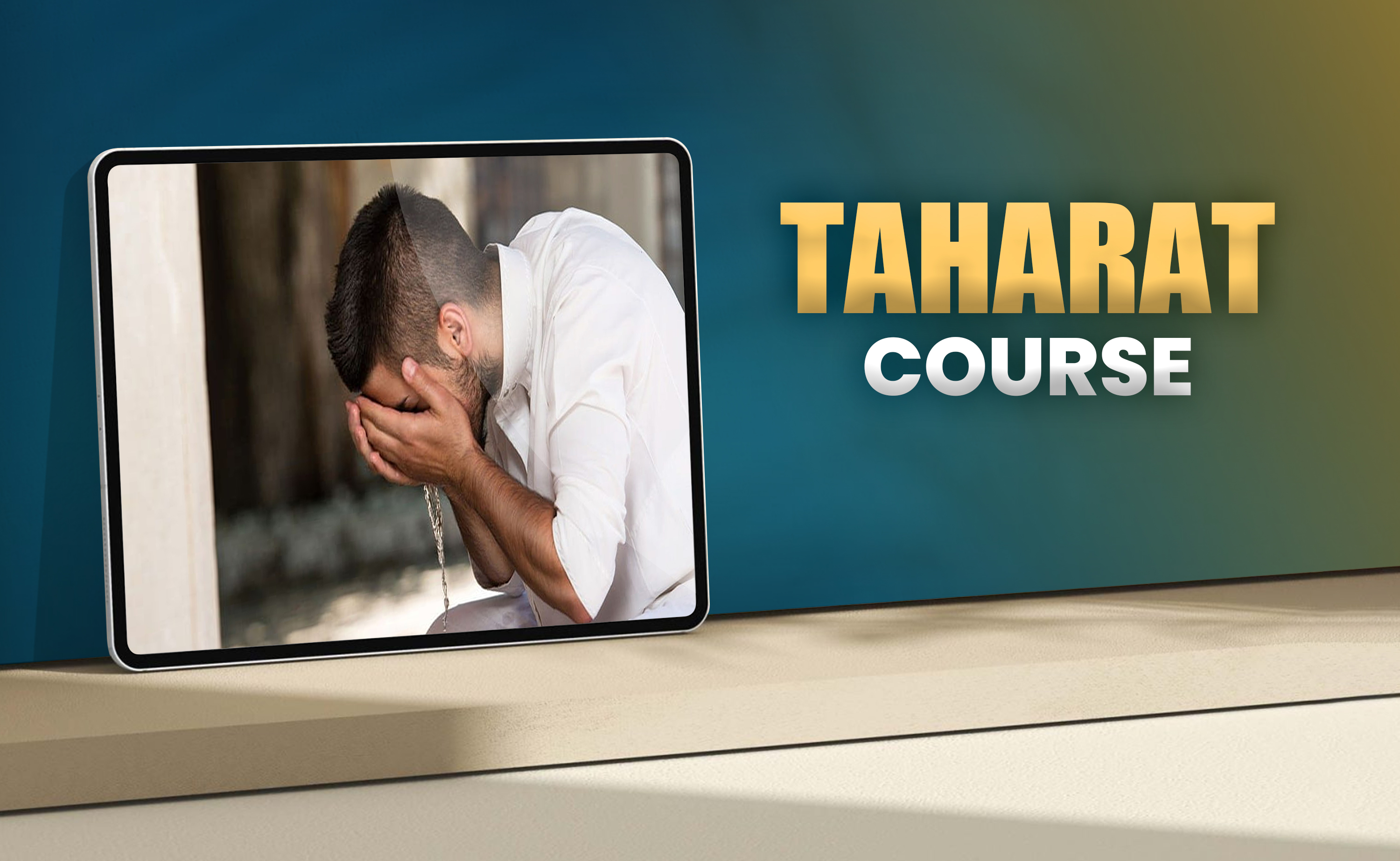What Topics Will the Course Cover?
-
Meaning and concept of taharat in Islam
-
The role of Taharat in Islamic prayers
-
Issues, conditions and the method of ghusal
-
How to clean dirty (napak) clothes and other items
-
Tayammum and its different conditions
-
Types of nijasat (impurities) and how to attain purity from them
What Will You Achieve?
-
The ability to recite salah according to the rules of Taharat
-
The understanding of fundamental concepts of Taharat
-
Knowledge to differentiate between Pak (clean) and Napak (dirty) states.
Overview:
Islam is a complete code of life. Religion has taught man how to live in line with the highest moral principles. Among the many ethical values of Islam, Taharat is essential and no prayer or salah can be complete unless one is clean from head to toe.
Being Muslims, we must be aware of the Taharat rules described by the Sharia. But, unfortunately, many Muslims have little to no knowledge of the concept of Taharat in Islam. They go about living their life without observing the principles of cleanliness set by Allah and that’s the ignorance they carry throughout their lifetime.
This comprehensive Taharat course was designed by Islamic experts to dispel misconceptions and teach the true meaning of Taharat in Islam.
The main aim of the course is to impart knowledge on staying clean and pure as per Quran and Sunnah rulings. Therefore, the course sheds light on the various areas of attaining taharat like types of purity, istinja method, bathroom etiquette, farz of ghusl, conditions for ghusl, what is tayamum, method of ablution, benefits of wudu, and so much more.
Living clean not only means being physically neat but also being pure in one’s thoughts and mind as well. So, the taharat course trains you not only in the fundamental teachings of Islam on bodily cleanliness but also in the purification of the soul.
The course is detailed and highly informative. It’s around 63 days long, each class being 30 minutes in length.
Who Is This Course For?
The minimum age for eligible students is 15 years. They must know how to read and write in Urdu.

Trending
This Course Includes
-
Anytime, Anywhere
-
Downloadable Resources
-
Individual & Group Class
-
Access on Mobile & Computers

